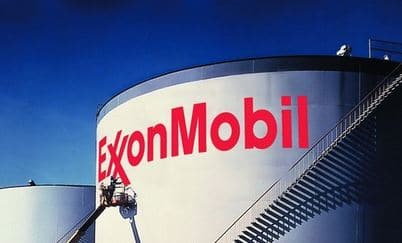This DeSmog UK epic history post looks at when free-marketeers Roger Bate and Julian Morris made the best of ExxonMobil’s spending bonanza.
Roger Bate and Julian Morris of the British free-market think tank, the Institute of Economic Affairs (IEA), decided to catch ExxonMobil’s gravy train across the Atlantic as they began working for US think tanks.
Bate became a Fellow in International Policy at the oil giant’s think tank du jour, the Competitive Enterprise Institute (CEI), which by 2001 had become ExxonMobil’s biggest beneficiary.
From here, he pitched the ‘Africa Fighting Malaria’ project to Philip Morris Commercial Services, which paid him $800 a day for his work.
The project would further the tobacco company’s interests since it would enable Bate to build a reputation amongst African politicians, enabling him to influence the World Health Organisation (WHO) on their tobacco protocol.
Bate added that if Philip Morris agreed to fund the project, he would be happy to continue working with the company under the guise of a “new operation, initially based in UK, but soon to have offices in South Africa.” In 2001, he published a paper with the CEI called “When Politics Kills: Malaria and the DDT Story”.
Koch-Ties
Meanwhile, Julian Morris had also been keeping an ear in with the US think tanks.
Morris maintained close ties to Koch’s Heartland Institute, writing environmental ‘myth busting’ articles advocating a ‘don’t worry, be happy’ attitude towards combatting climate change.
Morris and Bate co-authored “Risk, Health and the Environment,” a selection of essays debunking pervasive myths about, for example, the health risks of pesticide use.
The collection included an array of Heartland, Cato Institute and IEA insiders, including Dr Indur Goklany, who was, at the time of publication, in receipt of Heartland funding of $1,000 a month, and who now sits on Lord Lawson’s advisory board at the Global Warming Policy Foundation (GWPF): a climate sceptic charity in the UK.
International Tools
Morris and Bate met with their American counterparts, including Fred Smith of the CEI, in May 1999 to talk about how to challenge the green agenda.
Having thus developed their contacts, the two Englishmen in America decided to take advantage of the Libertarian spending boom. They were looking for an international tool, according to a strategy document released as part of the tobacco settlement, and were especially interested in “how to present our arguments to developing countries”.
The International Policy Network (IPN), based in the UK and the US, would provide this link. And so, the IPN officially came into being on 1st April 2001.
In reality, the IPN was none other than the UK branch of Antony Fisher’s Atlas Economic Research Foundation. The name change was supposed to be a new lease of life for the organisation, in line with the original conception of Atlas: to scatter the seeds of the free market across the globe.
The idea was that branches of the IPN would be set up across the world. Morris and Bate set up offices in India, Chile and the US.
American Donors
Their first year was strong, with more than £607,000 in foundation and corporate donations. Their accounts for 2001 state that the organisation was principally involved in archiving “historically important papers” for the forthcoming biography of their founder, Antony Fisher.
The eventual biography, Antony Fisher: Champion of Liberty, would be written by Gerald Frost, then-Director of CPS. But the men’s experiences in America had taught them the benefits of corporate donations stateside.
During 2002, the Trustees decided that it would be advantageous for donors based in America to be able to take advantage of the US tax regime in giving support to the IPN’s mission. Accordingly, a ‘sister’ US-based charity was formed, International Policy Network US, Inc., with Trustees of the IPN forming the majority of the Board of Directors of International Policy Network US, Inc.
Following this initiative, donations to the IPN declined in 2002, as expected, compared with the 18-month period ending in December 2001.
In 2001, the IPN reported £607,272 in donations (including £450,269 from corporations and £152,186 from foundations), but in 2002, only £79,745: this difference hints at the size of the donations coming from the other side of the Atlantic.
ExxonMobil Funding
Of the £79,745 that was received, £79,495 was donated directly from corporations, with just £150 given by individuals. The IPN’s setup in the United States helped them in securing extensive funding from Exxon, totalling $390,000 between 2003 and 2005.
ExxonMobil’s largest grant to the organisation, $115,000 in 2004, was specifically designated for “climate change activities”. This grant represented 16 percent of their total expenses for that year.
Thus, well oiled, in August 2002 the IPN moved its headquarters from the IEA’s offices on North Street to Bassetts Manor in Sussex, England, purchased for $900,000.
One month later, Morris visited a professor at the Department of International Studies, University of Buckingham – known for aligning with the interests of dirty energy and climate denial – in the same month that Lord Martin Jacomb, now a GWPF Trustee, was appointed as the university’s third Chancellor.
Next up on the DeSmog UK epic history series, we look at what happens when the IPCC holds its Bonn conference in the midst of ExxonMobil’s spending spree.
Subscribe to our newsletter
Stay up to date with DeSmog news and alerts







